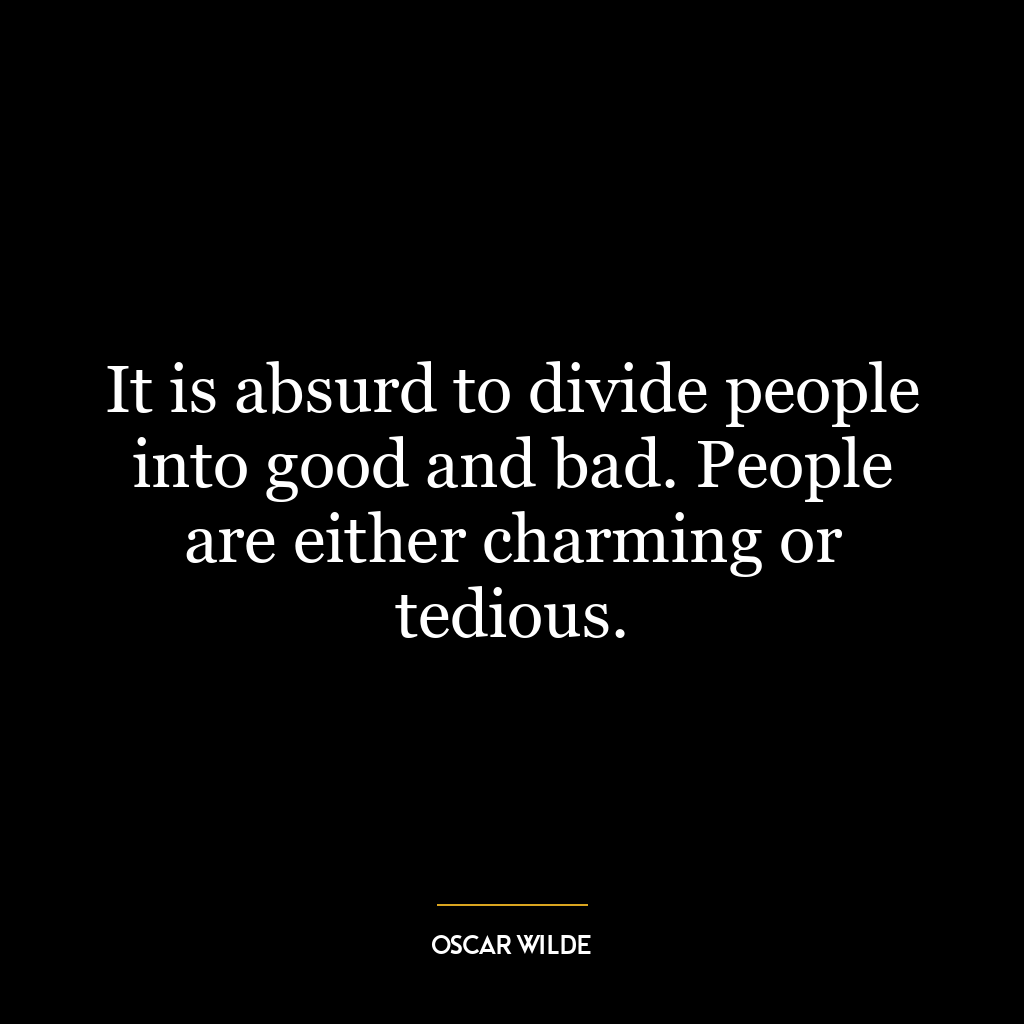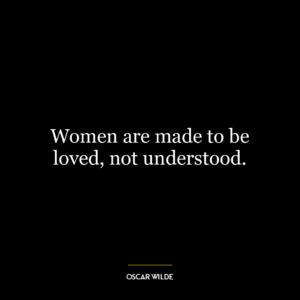It is absurd to divide people into good and bad. People are either charming or tedious.
This quote challenges the traditional dichotomy of people being categorized as either ‘good’ or ‘bad’, instead proposing that people are either ‘charming’ or ‘tedious’. The quote suggests that it’s not about morality, but rather about how interesting or engaging a person is. It underscores the idea that the essence of a person lies not in their moral standing, but in their ability to captivate or bore.
The ‘good’ or ‘bad’ dichotomy is often seen as overly simplistic and reductionist. It doesn’t account for the complexity and multifaceted nature of human beings. By suggesting that people are either ‘charming’ or ‘tedious’, the speaker is focusing more on the impact of a person’s personality, their charisma, and their ability to engage others, rather than their moral compass.
This perspective can be quite enlightening, especially in today’s world where we are often quick to label and judge others. It encourages us to look beyond the surface and not categorize people based solely on perceived notions of right and wrong. Instead, it suggests that we should evaluate people based on their individuality, their unique charm or lack thereof.
In terms of personal development, this idea can help us focus on improving our interpersonal skills and charisma, rather than obsessing over being perceived as ‘good’. It encourages us to be more engaging, interesting, and charming, which can lead to more fruitful and fulfilling relationships. It can also help us to be more open-minded and less judgmental, as we learn to appreciate people for who they are, rather than trying to fit them into predefined categories of ‘good’ or ‘bad’.
Moreover, understanding this concept can also help in developing empathy and tolerance. Recognizing that people cannot be simply classified as ‘good’ or ‘bad’ allows us to appreciate the complexities of human nature. It can foster understanding and acceptance, which are crucial for social harmony and personal growth.










